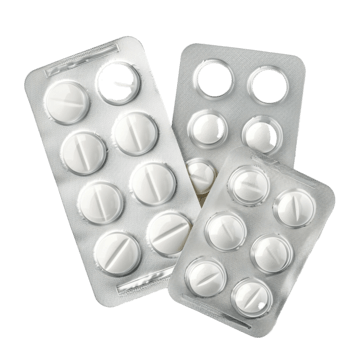Diclofenac

Diclofenac 25mg, 50mg, 75mg, 100mg
Diclofenac is a nonsteroidal anti-inflammatory drug (NSAID) used to relieve pain, reduce inflammation, and lower fever. It works by inhibiting enzymes involved in the production of prostaglandins, which contribute to pain and inflammation in the body. Commonly prescribed for conditions such as arthritis, menstrual pain, and acute injuries, Diclofenac helps improve mobility and enhance quality of life for individuals experiencing discomfort.
Order NowDescription
Diclofenac is a non-steroidal anti-inflammatory drug (NSAID) used to alleviate pain, reduce inflammation, and lower fever. It works by inhibiting enzymes in the body that contribute to inflammation and pain, providing relief for a variety of conditions.
Uses / Indications
- Osteoarthritis
- Rheumatoid arthritis
- Ankylosing spondylitis
- Acute pain (musculoskeletal injuries, surgery)
- Tendonitis and bursitis
- Primary dysmenorrhea (menstrual cramps)
Dosage and Administration
Adults:
The typical initial dose is 50 mg to 75 mg taken two to three times a day. Maintenance doses will depend on the condition being treated (maximum daily dose generally does not exceed 150 mg).
Children:
Dosage is determined by weight and specific conditions, usually prescribed by a pediatrician.
Note: Dosage may vary based on individual health needs and doctor’s advice.
How It Works (Mechanism of Action)
Diclofenac works by inhibiting the activity of cyclooxygenase (COX-1 and COX-2) enzymes, which play a significant role in the production of prostaglandins—compounds that promote inflammation, pain, and fever. By reducing prostaglandin synthesis, Diclofenac effectively alleviates discomfort and lowers inflammation.
Side Effects
Common side effects:
- Nausea
- Stomach pain or upset
- Headache
- Dizziness
Rare/serious side effects:
- Severe stomach/abdominal pain
- Signs of liver problems (jaundice, dark urine)
- Heart attack or stroke symptoms (chest pain, weakness, speech difficulties)
- Severe allergic reactions (rash, itching, swelling)
Seek medical attention if serious side effects occur.
Precautions / Warnings
- Inform your doctor if you have a history of heart disease, stomach ulcers, or liver and kidney issues.
- Use with caution if pregnant, breastfeeding, or planning to conceive.
- Briefly discontinue use before scheduled surgery to reduce the risk of excessive bleeding.
Drug Interactions
Diclofenac may interact with:
- Other NSAIDs or corticosteroids (increased risk of gastrointestinal bleeding)
- Anticoagulants (increased risk of bleeding)
- Certain medications that affect kidney function
- Diuretics
Always inform your healthcare provider about any other medications or supplements you’re taking.
Storage Instructions
- Store at room temperature (20°C–25°C / 68°F–77°F)
- Keep away from moisture, heat, and direct light
- Keep out of reach of children
Missed Dose / Overdose
Missed a dose?
Take it as soon as you remember. If it’s close to the time for your next dose, skip the missed one. Do not double up.
Overdose symptoms:
- Severe headaches
- Nausea and vomiting
- Dizziness
- Rapid heart rate
Contact a poison control center or seek emergency medical help immediately.
Contraindications
- Allergy to Diclofenac or any other NSAID
- History of serious allergic reactions (anaphylaxis)
- Active peptic ulcer or gastrointestinal bleeding
Brand Names / Alternatives
- Voltaren
- Cataflam
- Zorvolex
- Generic name: Diclofenac

